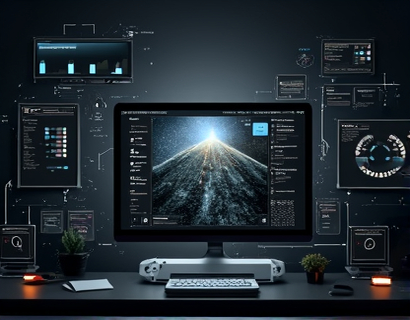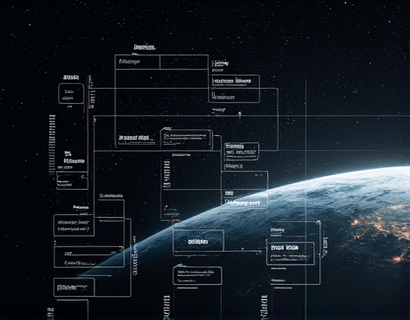Real-Time Government Data: Empowering Civic Participation Through Open Access and Accountability
In recent years, the integration of real-time data access into governance has emerged as a transformative force, reshaping the landscape of civic participation and governmental accountability. This shift towards open access to government information represents a significant step forward in democratizing the flow of data, enabling citizens to engage more meaningfully in the democratic process. By leveraging real-time data, governments can foster a culture of transparency and collaboration, ultimately leading to more informed and active citizenry.
The concept of real-time government data involves the immediate and continuous dissemination of government information to the public. This data can encompass a wide range of areas, including budget allocations, policy implementations, public service delivery, and environmental monitoring. The availability of such data in real-time not only enhances the efficiency of government operations but also empowers citizens to monitor and evaluate the performance of their elected officials and public institutions.
Enhancing Transparency
Transparency is a cornerstone of democratic governance, and real-time data access plays a crucial role in achieving this goal. When government data is made available in real-time, it breaks down the barriers of information asymmetry that often exist between the government and the public. Citizens can access timely and accurate information, which is essential for making informed decisions and holding authorities accountable.
For instance, real-time budget data can provide insights into how public funds are being allocated and spent. This level of transparency allows citizens to track government expenditures, identify potential mismanagement, and advocate for more responsible fiscal policies. Similarly, real-time data on public service delivery, such as hospital wait times or school performance metrics, enables citizens to assess the effectiveness of government services and demand improvements.
Fostering Informed Citizen Participation
The availability of real-time government data significantly enhances citizen participation in the democratic process. Informed citizens are better equipped to engage in meaningful dialogue, participate in public consultations, and vote based on comprehensive information. This informed participation is vital for ensuring that government decisions reflect the true needs and preferences of the population.
Real-time data can also facilitate grassroots movements and community initiatives. For example, environmental monitoring data can empower local communities to take action against pollution or climate change. By having access to current and accurate data, citizens can organize campaigns, raise awareness, and collaborate with policymakers to implement sustainable solutions.
Promoting Accountability
Accountability is another critical aspect of governance that real-time data access helps to strengthen. When government actions and decisions are transparent and accessible, it becomes easier for citizens to hold officials accountable for their actions. This accountability is essential for building trust between the government and the public, which is fundamental for a healthy democracy.
Real-time data can be used to create oversight mechanisms that monitor government performance. For instance, independent watchdog organizations can utilize real-time data to conduct regular audits and reports, highlighting areas of success and areas needing improvement. This continuous monitoring ensures that government entities remain responsive to the needs of the citizens they serve.
Technological Enablers
The realization of real-time government data is made possible through advancements in technology. Modern information and communication technologies (ICT) have enabled the collection, processing, and dissemination of data at an unprecedented scale and speed. Open data platforms, APIs, and data portals are some of the key technological tools that facilitate the sharing of government information.
Open data platforms provide a centralized repository where government data is stored and made accessible to the public. These platforms often include searchable databases, visualizations, and interactive tools that make it easier for citizens to find and use the data they need. APIs (Application Programming Interfaces) allow developers to integrate government data into various applications and services, fostering innovation and new forms of civic engagement.
Case Studies: Successful Implementations
Several governments around the world have successfully implemented real-time data initiatives, demonstrating the positive impact on civic participation and accountability. One notable example is the city of Barcelona, which has developed an open data portal that provides real-time information on various city services, from public transportation to waste management. This portal has not only improved the efficiency of city operations but also engaged citizens in collaborative problem-solving.
Another example is the United States, where the Data.gov platform serves as a comprehensive source of federal government data. This platform offers real-time access to a wide range of datasets, enabling researchers, developers, and the general public to create valuable applications and insights. The transparency provided by Data.gov has led to increased public scrutiny and better governance practices.
Challenges and Considerations
While the benefits of real-time government data are clear, there are also challenges and considerations that need to be addressed. One major challenge is ensuring the quality and accuracy of the data. Inaccurate or outdated information can lead to misinformed decisions and erode public trust. Therefore, governments must invest in robust data management systems to maintain high standards of data quality.
Privacy and security are additional concerns. Real-time data often includes sensitive information, and it is crucial to implement strong data protection measures to safeguard citizen privacy. Governments must balance the need for transparency with the responsibility to protect personal data from unauthorized access and misuse.
Moving Forward: A Call to Action
The adoption of real-time government data represents a significant opportunity to enhance civic participation and accountability. As more governments embrace open data initiatives, the potential for positive change grows exponentially. Citizens, policymakers, and technology experts must collaborate to overcome the challenges and fully realize the benefits of this transformative approach.
To join the movement towards a more open and participatory government, individuals can take several steps. First, stay informed by regularly checking open data portals and engaging with government data. Second, participate in public consultations and provide feedback on policy proposals based on real-time data insights. Third, support and contribute to initiatives that promote data transparency and civic engagement.
By embracing real-time government data, we can build a more transparent, accountable, and participatory democracy. The time to act is now, as the future of governance depends on our collective effort to harness the power of open data.










































